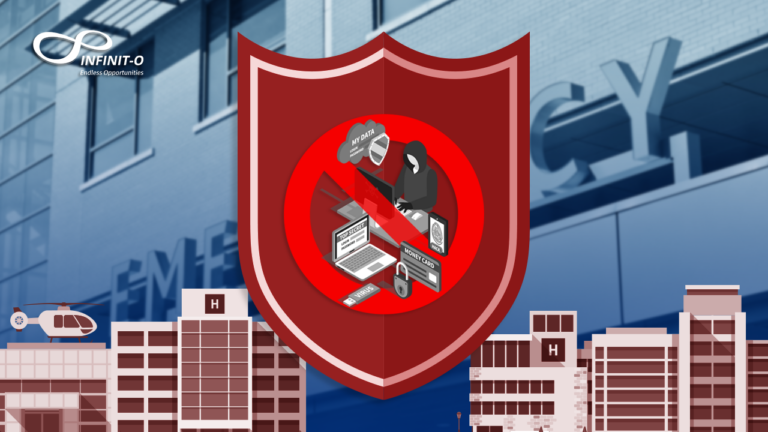How Nurses Are Using Health Informatics to Improve Patient Care
If you want to pursue a career that will make a mark in every patient’s life, there’s nothing as vital as the field of Nursing.
While nurses execute orders from doctors, they are also to create a certain level of connection with the patients. They do this so patients will not worry about entrusting their lives to a total stranger. At any given medical procedure, the doctors act as the brain that finds a solution to a problem. Nurses meanwhile are the hands that carry out to the patients what the doctors conceptualized. This is how vital their function is. Today, as the world of healthcare evolves, so does its function. They are now more empowered to decide on how a doctor’s decision will be executed.
In the field of healthcare, we all know a patient’s life is heavily reliant on every decision nurses and other healthcare professionals make. With the increasing nurse-to-patient ratio, nurses should also have their supporting arm to carry out their function. This is where Health Informatics comes in. Introducing robust Health Informatics to their treatment and care plan will make them more efficient in taking care of the patients.
What is Health Informatics?
Health Informatics started in Europe in the 1940s and mid-1970s in the USA. It is a form of healthcare discipline that uses technology in collecting data, organizing information, analysis, and management which enhances healthcare services. With the use of electronic records, stable information management is built, resulting in high-quality clinical standards. Today, Health Informatics has reached its widest spread across the globe.
So how do nurses use Health Informatics?
Enhanced Patient Documentation Process
One key advantage of Health Informatics is having available data, both real-time and historical. Having access to electronic data will make the work of the nurses easier. Manually written records need to be read and understood; it takes time. Searching for a patient’s medical history stored in a conventional steel drawer takes time too. Instead of doing those, they can quickly verify a medical record from an automated database in a computer. The needed information can be accessed promptly, having all the information on hand.
The kind of data stored in the database though must be kept accurate and complete. Bad data leads to bad decisions. Lack of data leads to delays in making a decision. The institution must ensure that only actionable data is collected to deliver health care service to a patient.
Aid Nurses in Decision Making
Nurses work in a fast-paced environment. Every blink of an eye is equivalent to a life threatened or a life being saved. If nurses have quick access to data, making prompt and accurate decisions will not be hampered. The data will be the guiding point of nurses as they treat a patient’s condition. If there is a need for further studies, Health Informatics will be able to provide reporting and analytics, resulting in more sound decisions and actions.
In fact, according to an article from Saudi Medical Journal and Canadian Center of Science and Education, access to Health Informatics reduces medical errors hence enabling nurses to deliver high-caliber patient care.
Refining Nursing Care Plan
Establishing Health Informatics means automating the nursing care plan. A care plan is a strategy of action that guides healthcare practitioners about executing patient care; NCP consists of identifying the patient’s problem, nursing diagnosis, nursing intervention, rationale of action, and expected outcome. Automating these data provides easy access to other healthcare practitioners who refer to NCP for providing treatment and carrying out necessary care procedures. With Health Informatics, computers are used to search and update the patient’s records. A decrease in processing time also allows healthcare providers to accommodate new treatments and procedures without the need for a longer coordination process among other healthcare personnel.
Help Build a Care Network among Healthcare Personnel
For a patient to be discharged from the hospital, a may-go-home procedure needs to be done. These include final advice from the attending physicians, arranging financial matters with the billing section, checking with the housekeeping if there are concerns, ensuring that take-home medicines are available in the hospital pharmacy, and scheduling follow-up visits after discharge. Coordination with the numerous, different hospital personnel prolongs the patient’s waiting time hence, increasing the agony of waiting to go home. With Health Informatics on hand and updated in real-time, nurses need not undergo long coordination. They can prepare the discharge report at once and release the patient.
This only shows that Health Informatics enables the merging of all the medical reports, findings, and records of a patient. There is a care network on hand. They can refer to the electronic record on hand instead of flipping through pages.
Cost Efficiency
In any procedure, processing time being shortened translates to cost savings. Less error in treatment provided, accurate tests and medication given, and faster coordination between healthcare providers, all equate to efficiency and cost reduction. With Health Informatics, the productivity of the nurses increases as well because readily available information decreases procedure time such as deciphering a doctor’s order and checking a patient’s chart manually from time to time. With increased productivity due to carrying out treatment faster, more tasks are accomplished, enabling the healthcare institution to not save just time but also save on cost. Automating data records also makes processing medical claims more accurate which equates to minimizing billing errors, and equally cost-efficient examples.
Health Informatics also helps eliminate errors that have cost implications. If procedures are automated, errors are prevented if not, minimized to an acceptable level. This gives the institution savings on operational costs brought by the errors.
Building your Health Informatics
The most challenging part is establishing your Health Informatics infrastructure. There is so much work to do. Doing it on your own will result in hiring healthcare practitioners thus allocating a higher budget for manpower and up-to-date Health Informatics training.
Having someone who can round up a team of healthcare practitioners who are trained and knowledgeable in Health Informatics can aid your business in overcoming the aforementioned challenges. Leveraging innovations such as Health Informatics helps not just nurses and other healthcare providers but also your business in adapting to the ever-growing trend of providing the best patient care and improving their overall hospital experience. One thing you can do is to team up with a solutions partner such as Infinit-O.
Here at Infinit-O we understand the value of the doctor-nurse-patient paradigm. We provide Revenue Cycle Management, Nursing Triage, Patient Concierge, Data Analytics, Business Process Management, Medical Billing Medical Coding, and other healthcare support solutions. We stay on top of the latest updates in Health Informatics to ensure a high turnover of doctors’ orders to the nurses and limit patients’ wait time to receive care. By building a great team of healthcare professionals, we can work together to accomplish the goals you are striving to achieve.
At Infinit-O, we aim to create long-lasting partnerships with our clients; rendering a strong combination of business consultancy, process optimization, and outsourced services; all utilizing the latest technology to provide excellent value for our clients. We are ISO-certified, HIPAA– and GDPR-compliant, so your company and data are safe with us.
Let’s Build a Great Team for you!
Infinit-O is the trusted customer-centric and sustainable leader in Business Process Optimization to Small and Medium businesses in the Financial Services, Healthcare and Technology sectors by delivering continuous improvement through technology, data and people.







This site is protected by reCAPTCHA and the Google Privacy Policy and Terms of Service apply.